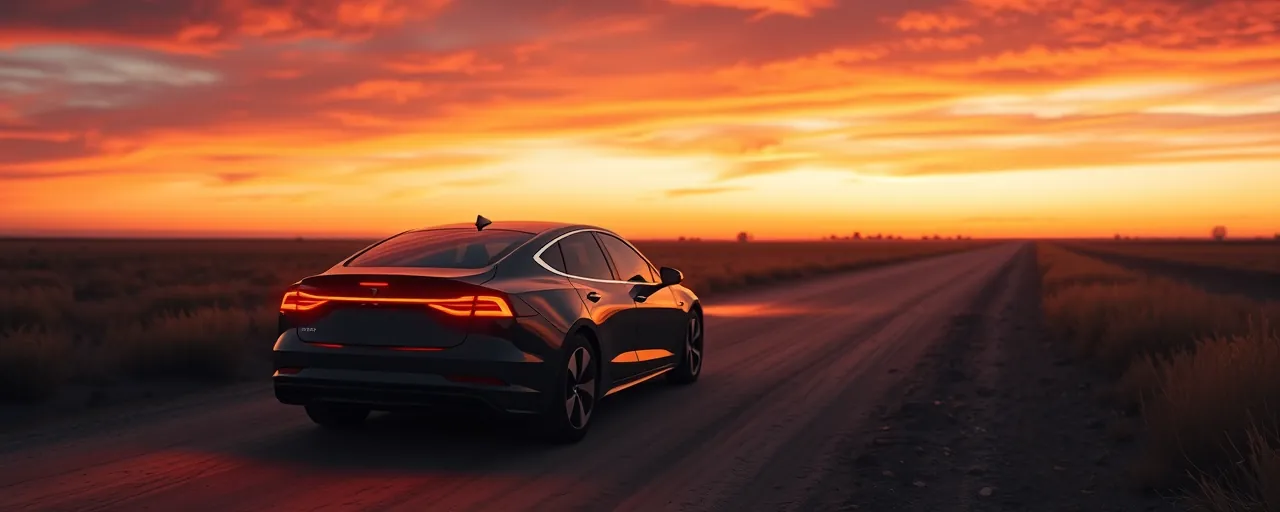A Heavy-Handed Green Agenda
Eleven governors, including California’s Gavin Newsom and New Jersey’s Phil Murphy, have banded together in the Affordable Clean Cars Coalition, wielding their Clean Air Act authority to ram through electric vehicle mandates. They promise cleaner air and more choices, but this plan feels like a top-down dictate that steamrolls the needs of everyday Americans. Behind the lofty rhetoric lies a costly agenda that burdens families and threatens economic stability.
The coalition’s goals are ambitious: 43 percent zero-emission vehicle sales by 2027, with a full transition by 2035. On the surface, it’s a vision of progress. Dig deeper, and it’s a policy that could price millions out of car ownership while straining infrastructure and jobs. Why are these governors so determined to control what we drive, when most Americans just want vehicles they can afford and rely on?
Federal policies haven’t helped. The Biden administration’s EV tax credits and charging grants have already disrupted the auto market, and now these governors are doubling down with state-level rules. This isn’t about empowering people; it’s about enforcing a narrow vision that prioritizes green ideals over practical realities. Americans deserve policies that respect their needs, not ones that cater to elite priorities.
The True Price of Electric Dreams
Electric vehicles cost thousands more than gas-powered cars, even with subsidies. The $7,500 Clean Vehicle Tax Credit sounds generous, but it’s taxpayer money propping up a market that doesn’t yet stand on its own. Data shows 30 percent of EV buyers depend on this credit, meaning the rest of us are subsidizing a choice not everyone can afford. How does that help the average family struggling to make ends meet?
Infrastructure woes make it worse. California, with 29 percent of the nation’s chargers, still falls short of its 1.2 million needed by 2030. Rural and Midwest states have far fewer, leaving drivers stranded. Heavier EVs also drive up road maintenance costs by 20 percent, while falling gas tax revenues—down 5 to 10 percent yearly—leave state budgets in a bind. Taxpayers will foot the bill through higher taxes or neglected roads.
Then there’s the job toll. Senator John Barrasso and other Republican leaders warn that EV mandates endanger millions of jobs in auto manufacturing and oil refining, especially in states like Michigan and Texas. A forced shift to EVs risks shuttering plants and devastating communities. Why should workers pay the price for a policy that doesn’t even guarantee cleaner air?
Stripping Away Real Choice
The governors boast about over 100 EV models, claiming their plan expands options. But mandating zero-emission sales by 2035 effectively bans gas-powered cars, leaving rural drivers and small-business owners with fewer practical choices. Hybrids, which offer efficiency without the range anxiety, get pushed aside in this rush to electrify everything. True choice means letting people pick what works for them, not forcing one path.
Republicans in Congress have a better approach. By repealing California’s 2035 gas-car ban and scaling back EV tax credits, they’re fighting for a market where consumers, not bureaucrats, call the shots. These efforts prioritize freedom and affordability, ensuring a farmer in Nebraska or a delivery driver in Ohio can choose a vehicle that fits their life. Why let distant policymakers decide what’s best for local needs?
A Smarter Way to Cleaner Air
Cleaner air doesn’t require heavy-handed mandates. Policies that reduce emissions across all vehicles—gas, hybrid, and electric—can cut pollution without breaking the bank. House Republicans advocate for fuel-efficient engines and lightweight materials, solutions that keep cars affordable and protect jobs. This approach trusts the market to innovate, not government to dictate.
States should focus on infrastructure that serves everyone, like fixing roads and expanding rural access to reliable power, rather than pouring billions into urban chargers. Governors must also respect federal checks on their authority. The Congressional Review Act’s push to limit California’s waivers aims to restore balance, ensuring states don’t overstep at the expense of national unity.
The Affordable Clean Cars Coalition claims to champion health and progress, but its mandates saddle families with higher costs, weaken infrastructure, and jeopardize livelihoods. Americans need policies that deliver clean air and economic freedom through choice, not coercion. Let’s build a future that puts people first, trusting them to drive the path forward.
